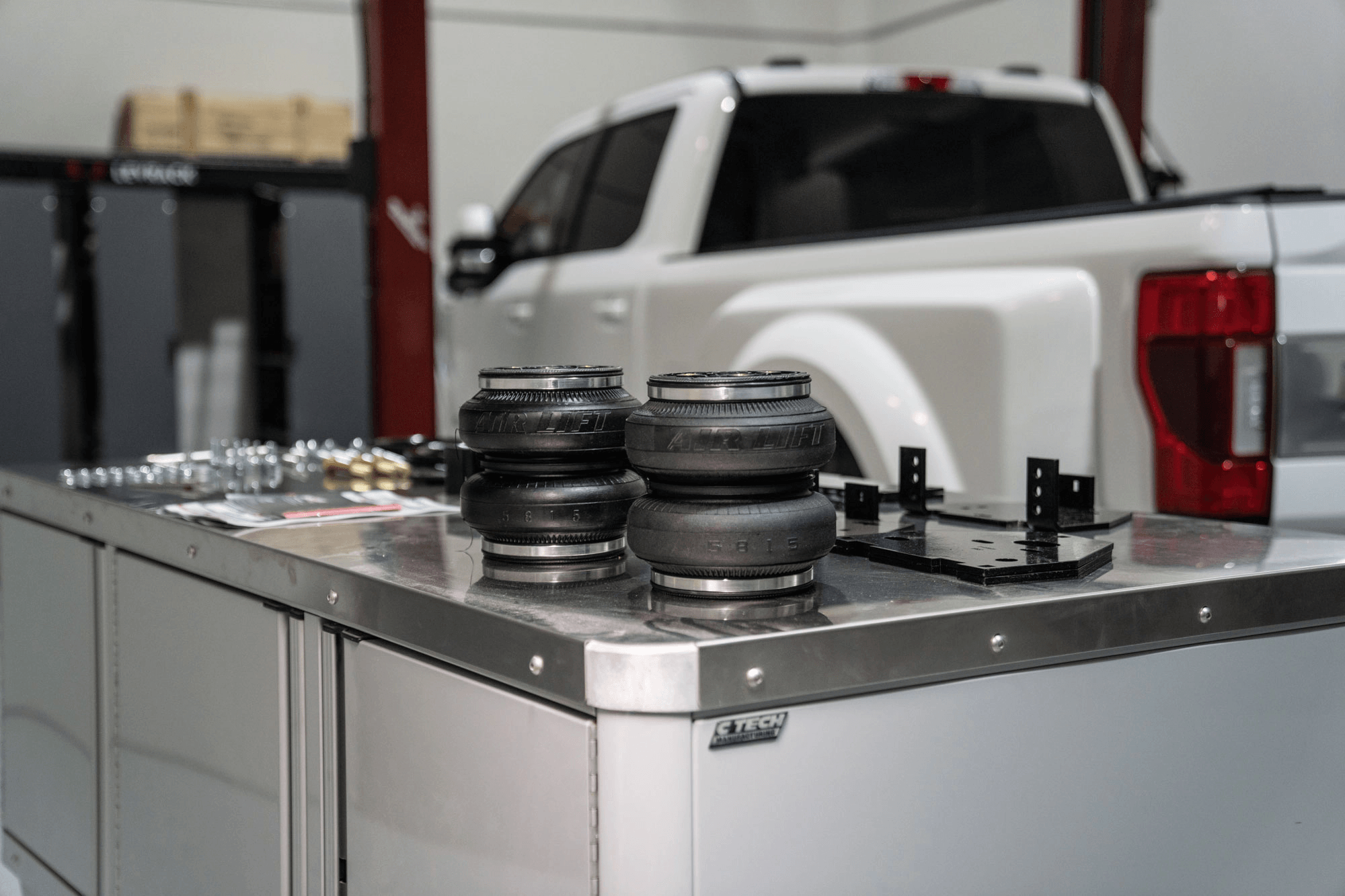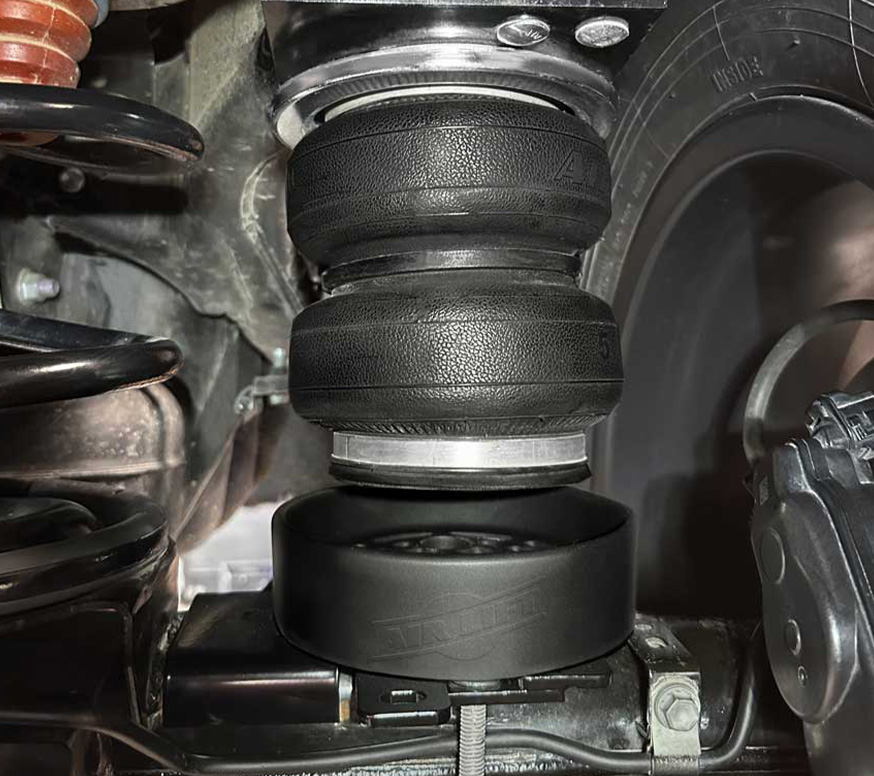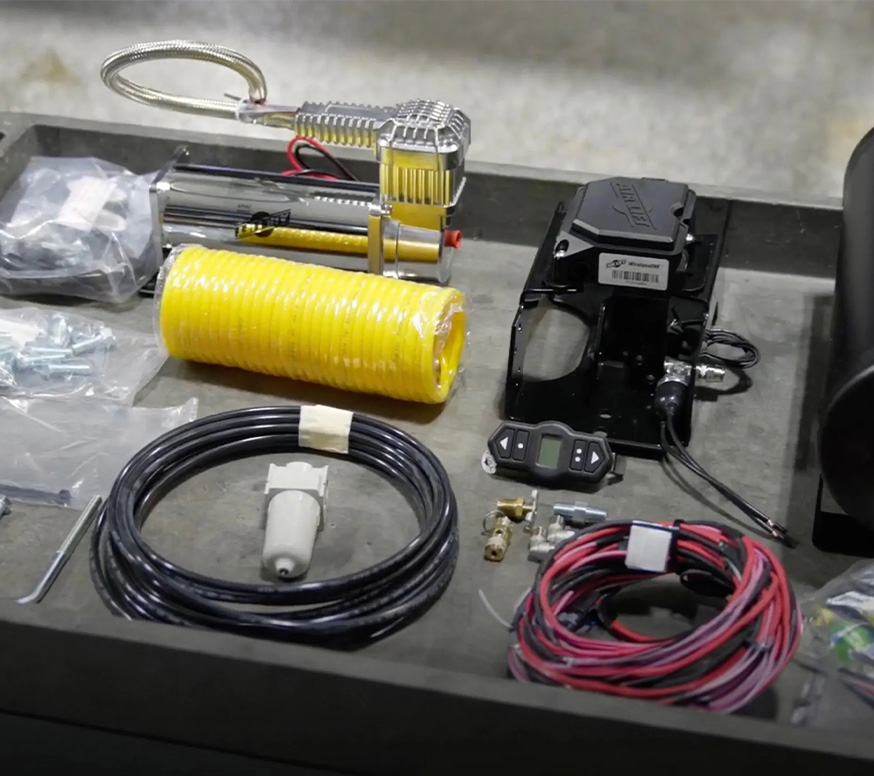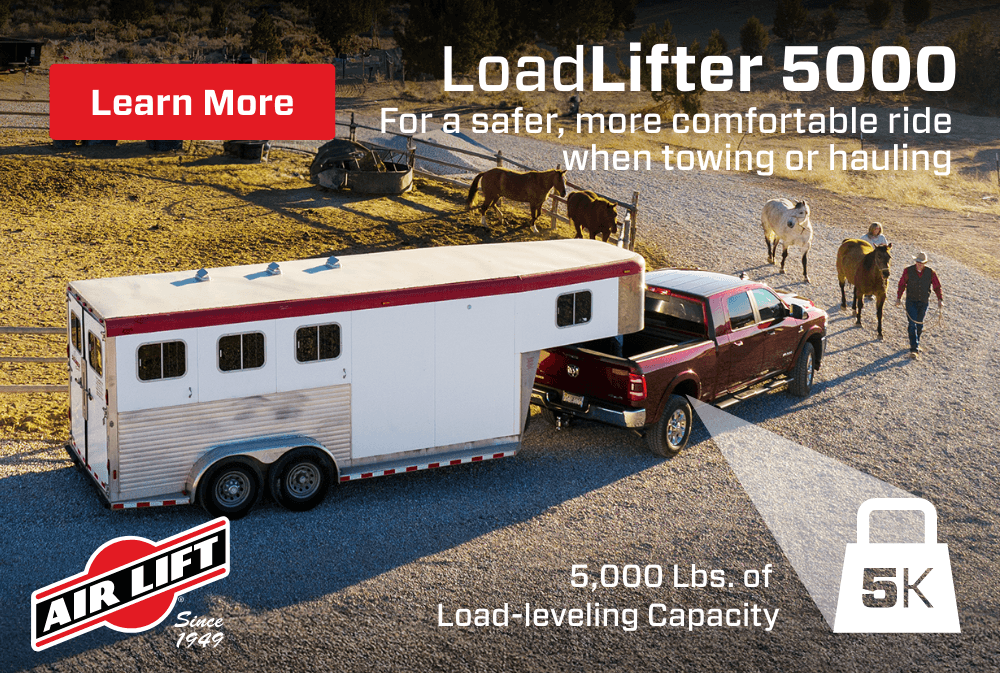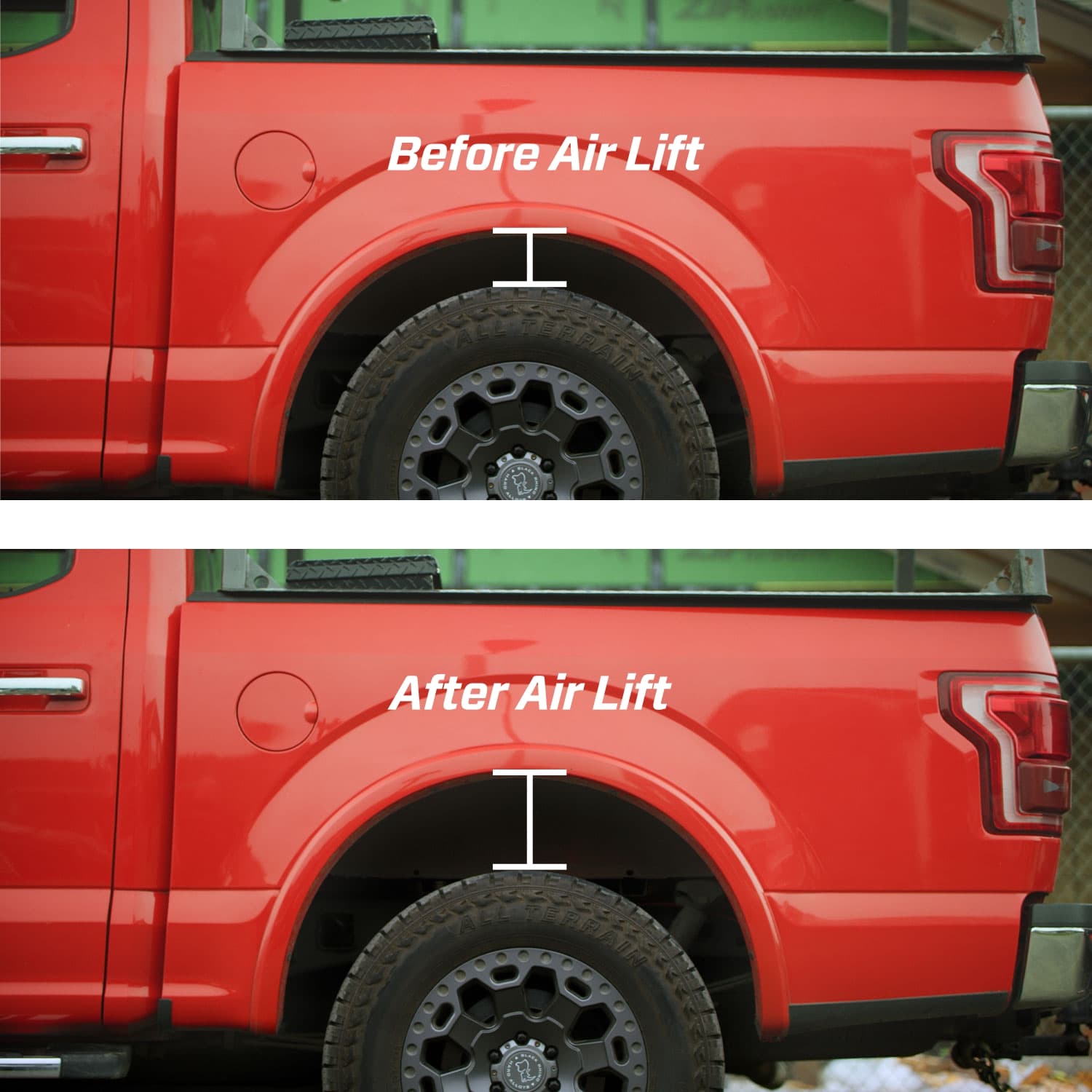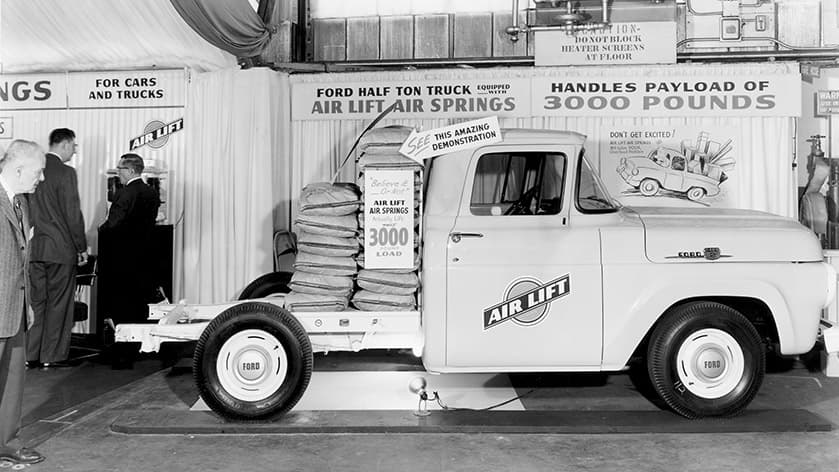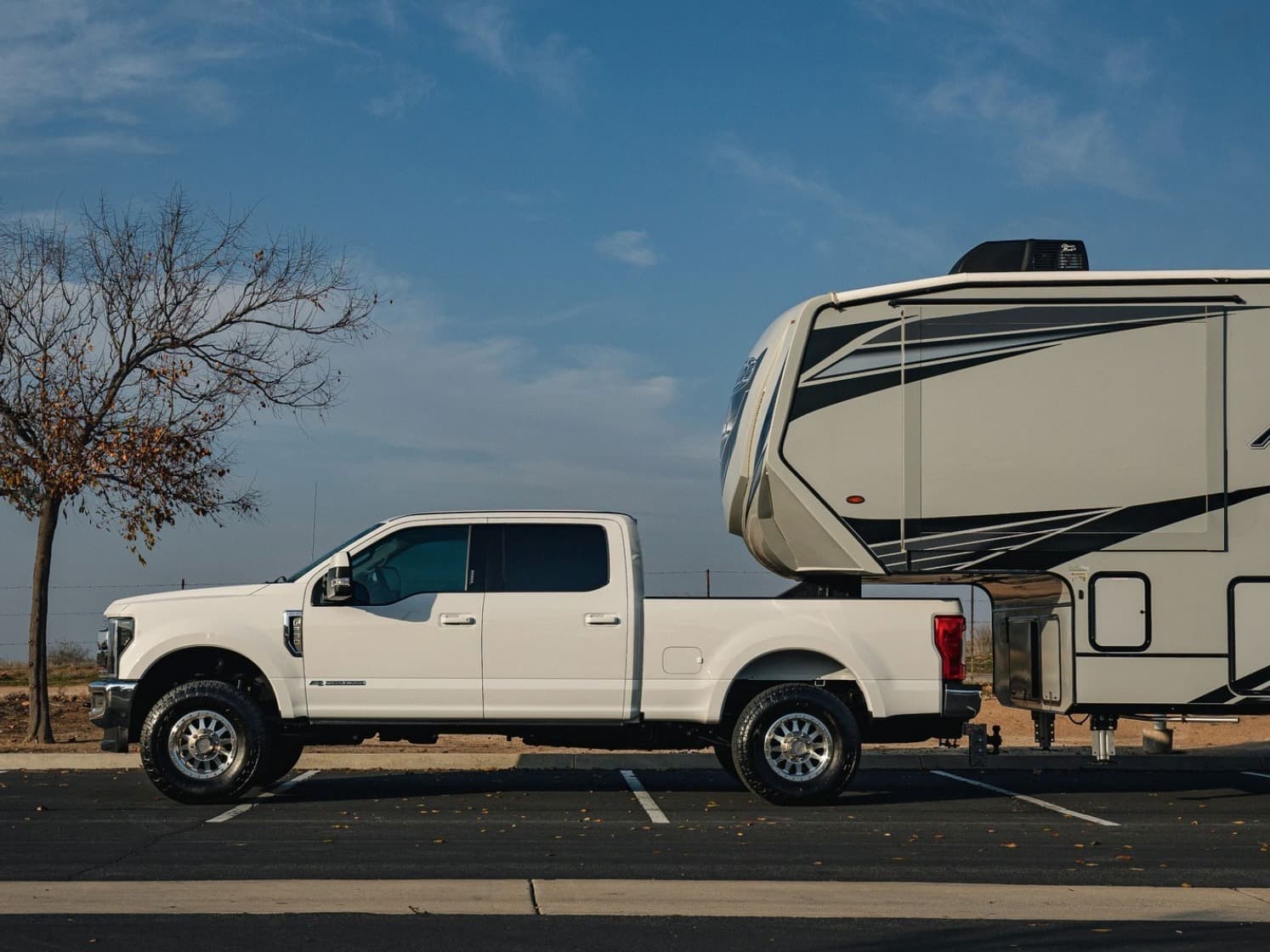
Air Suspension vs Spring Suspension: Which is Better for Comfort, Towing, and Load Support?
10/7/2025
When it comes to ride comfort, load support, and handling, your suspension system plays a major role. Drivers often ask whether air suspension or spring suspension is the better choice for their vehicle. Each has its advantages, and the best option depends on your driving style, needs, and long-term goals.
What is Air Suspension?
Air suspension uses flexible air springs (often times called airbags or air bellows) that inflate or deflate with compressed air. Instead of relying on the fixed resistance of steel, air suspension adjusts on the fly, providing customizable ride height and load support.
Modern air suspension systems, like those from Air Lift, include on-board compressors and controls that let you fine-tune your setup with the push of a button.
What is Spring Suspension?
Spring suspension—most commonly known as leaf springs or coil springs—has been the traditional suspension choice for decades. These steel springs are durable, affordable, and effective for basic load-bearing and everyday driving. However, they can’t adapt to changing loads or road conditions the way air suspension can.
Which Type of Suspension is Best?
There isn’t a single answer—it all depends on your preferences and priorities.
Choose air suspension if:
You tow or haul frequently, want adjustable ride comfort, or need precise leveling for heavy loads.Choose spring suspension if:
You want a simple, low-cost solution and don’t require load flexibility.
For many truck, SUV, and RV owners, air suspension provides the extra control and comfort that spring suspension can’t match.
Is Air Suspension Good for Bumpy Roads?
The simple answer, yes. Air suspension is especially effective on rough or uneven surfaces. By adjusting air pressure, the system absorbs more impact and keeps your ride smoother. Spring suspensions, while rugged, tend to transfer more vibration and bounce into the vehicle.
Is Air Suspension High Maintenance?
While air suspension requires slightly more attention than springs, modern air suspension systems are built to last. Key maintenance includes checking for air leaks, monitoring compressor performance, and replacing worn components as needed.
With proper installation and occasional inspection, air suspension can be just as reliable as spring suspension—and often much more comfortable.
Can You Convert Spring Suspension to Air?
Absolutely. Many vehicle owners upgrade by adding air suspension to their existing spring setup. Air Lift conversion kits are designed to integrate directly with factory suspension, offering an affordable way to improve towing, hauling, and ride comfort.
Is Air Suspension Worth It?
For drivers who tow trailers, carry heavy loads, or simply want the smoothest ride possible, air suspension is absolutely worth it. It provides better control, comfort, and flexibility than spring suspension, making it a smart long-term investment.
In the debate of air suspension vs. spring suspension, the choice ultimately comes down to how you use your vehicle. Springs are tough and simple, but air suspension offers adaptability and comfort that springs can’t match.
If you’re considering upgrading, explore the full range of Air Lift suspension solutions to find the perfect fit for your vehicle.
Learn More About Air Lift
Since 1949, we’ve been a family-owned, locally operated company in Lansing, Michigan. We design and engineer the most technologically advanced suspension products, because your comfort, stability, and safety are always our top priority.
